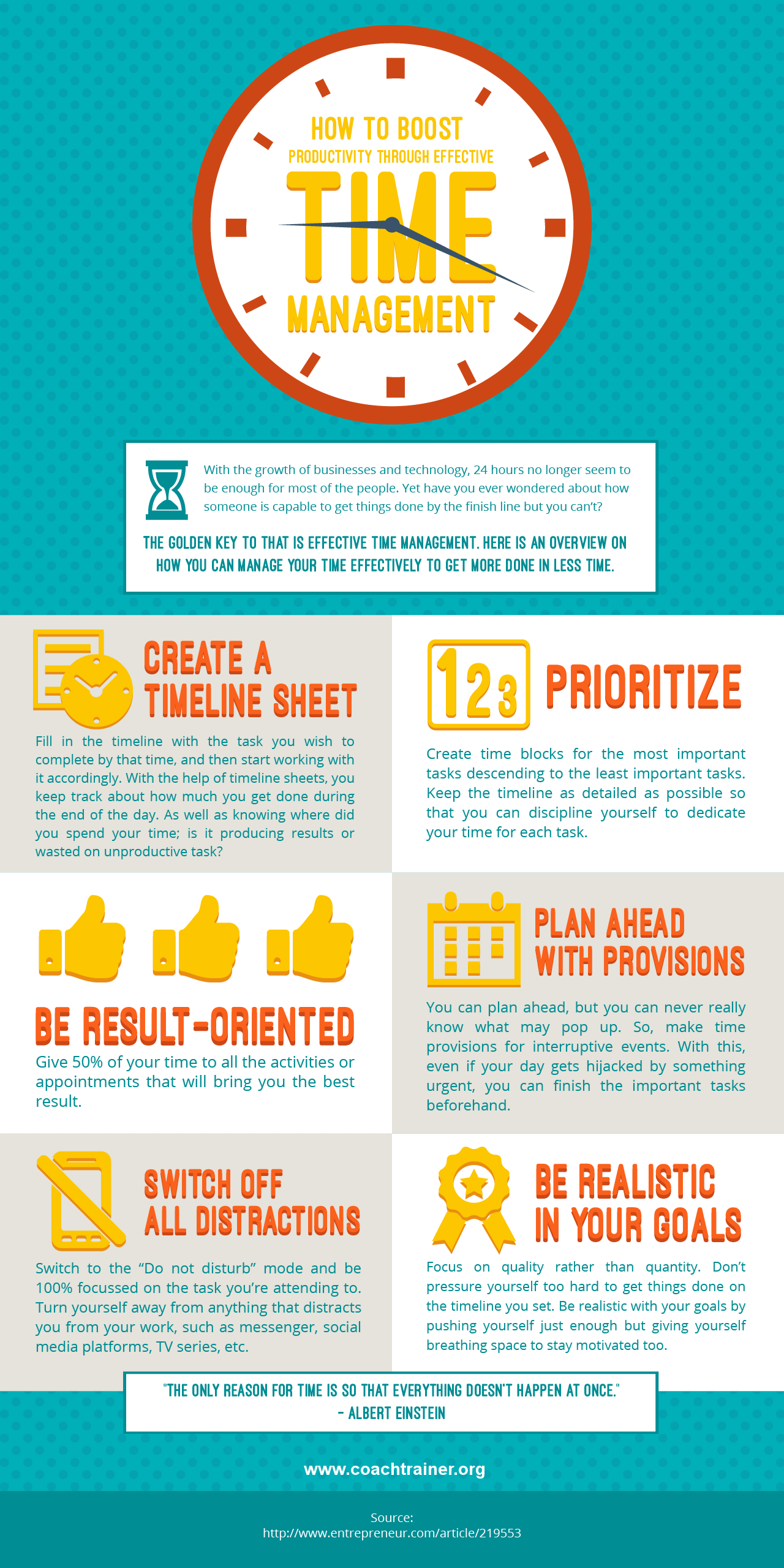https://outwittrade.com/time-management-tips by Katie Holmes
Welcome to the best compilation of time management tips on the internet, courtesy of dozens of great comments people have sent us on this topic. Here is the simple question I asked people:
For those always complaining about not having enough hours in the day, what time management tip can you share that has worked for you personally?
Of the 100+ comments that people sent, I’ve published the best one’s below. Here’s a summary of the points, tips and advice people have put forward, along with a link to the full comment for each point:
- Split up your time by taking a 5 minute break every 25 minutes (the Pomodoro technique) (link)
- Schedule shorter meetings (link)
- Don’t waste your “dead-time” (such as waiting at a train station or waiting for an email) (link)
- Focus on just 1 project in the morning (link)
- Plan your week in advance (link) (EDITORS NOTE: Or every day in advance, the night before — this was a very common piece of advice in comments people sent to us)
- Think of how you can remove any possible distractions, starting with of course your phone and social media (link)
- Stick to your schedule (link)
- Pay attention to your sleep management, and have a consistent bedtime and wake-up time, even on weekends (link)
- Write down all your tasks on sticky notes and place them on your desk in sequence (link)
- Know the dollar value of your time, and if you can delegate or outsource a task for less than your time is worth, do it (link)
- Reward yourself for not slacking off, by slacking off (link)
- Do a time audit where you work out exactly how and where you’re spending your time (link). You can further categorize tasks using a time management matrix, where they’re sorted based on urgency and importance (link). After this you’ll know where you’re wasting time and what you should be focusing on more
- Start your day by doing the hardest thing first — the “Eat That Frog” method by the bestselling book of the same name (link) (EDITORS NOTE: Many people recommended this, though one other comment recommends the opposite — starting with the easiest task first.)
- Regarding the above point, whether you’re an early bird or night owl may affect when you get your best work done (link)
- Set an alarm clock and try to beat the timer (link)
- You should of course cut back on social media, and avoid looking at it in the morning if you can (link)
- Set a specific time each day to look at emails, and only look at emails during this time and no other time (link)
- See if you can get family members to help you (link) (EDITORS NOTE: This one is obviously not applicable or practical for everyone)
- To help motivate yourself, write up a DONE list (as opposed to a todo list) (link)
- Keep a routine (link)
- Music can help (link)
- Batch your tasks together (link)
- Take some nice time for yourself before the workday (link)
- If you’re the type to get bored or distracted easily, use time blocking to make sure you’re not spending too much time on the same task at once (link)
- Keep a clean work environment (link)
- Schedule some grace time into your workday (link)
- Get up early and watch the sunrise (link)
- Avoid decision fatigue (link)

